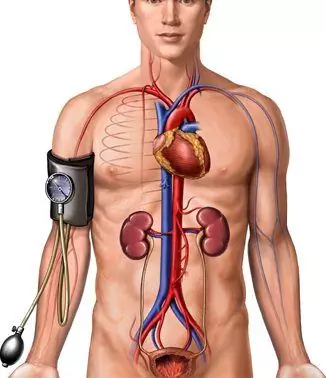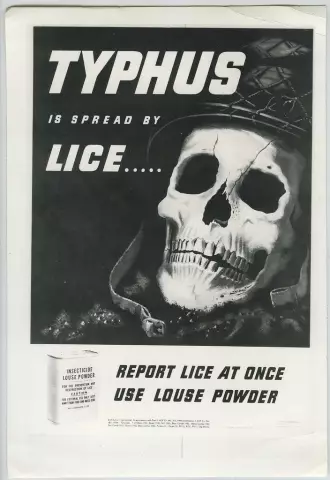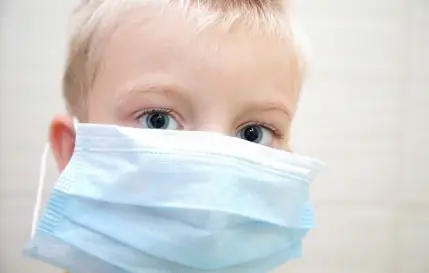- Author Rachel Wainwright wainwright@abchealthonline.com.
- Public 2023-12-15 07:39.
- Last modified 2025-11-02 20:14.
Parotitis
Brief description of the disease

Mumps (popularly known as "mumps") is an acute viral disease, accompanied by intoxication, fever, disorders in the salivary glands, other glandular organs and the central nervous system of a person. The causative agent of the infection is the mumps virus, which enters the body through the upper respiratory tract. This is the main method of infection. In addition, mumps can make itself felt after contact with the personal belongings of an already sick person. It spreads through the body through the blood vessels, through which the virus gets to the salivary glands and the central nervous system, because they have all the conditions for its rapid reproduction.
I would like to especially note the fact that absolutely everyone can become infected with mumps, but nevertheless, mumps is most often detected in children, since their immune system resists infections less effectively than in adults. On the other hand, children endure the disease much easier and experience the most acute manifestations of the disease faster. The first symptoms of a viral infection appear 10-15 days after infection. When diagnosed with mumps, treatment should begin as soon as possible, since mumps affects the functioning of vital body systems and leads to serious complications.
Symptoms and clinical picture of the disease
As a rule, the latent period of the course of mumps lasts about 2-2.5 weeks. After that, the virus is activated and manifests itself with the following symptoms:
- ailments;
- weakness, fatigue;
- rise in body temperature to 38-39 degrees;
- decreased appetite;
- dry mouth;
- pain in the ear area associated with the fact that mumps affects the parotid salivary glands.
Soreness of the affected glands increases with talking or chewing. At the same time, they increase in size and lead to skin tension, the appearance of edema at the site of the development of the inflammatory process, which often pass to the surface of the neck. The most intense acute epidemic parotitis in children develops within 4-5 days after the end of the incubation period, and then the swelling gradually decreases. Depending on the severity of symptoms, the clinical course of mumps is divided into three types:
- lung - only the salivary glands are affected, the temperature lasts 1-2 days, the child's well-being changes slightly;
- of moderate severity - mumps affects not only the salivary glands, but also other glandular organs. Fever is accompanied by prolonged high fever, headache, appetite and sleep disorders;
- severe - the temperature reaches 40 degrees, lasts at least a week, the infection affects the most important systems of the body, including the central nervous system. Swelling of the salivary glands and other characteristic signs of mumps are strongly pronounced.
An important point: mumps, the prevention and treatment of which were started too late, leads to inflammation of the meninges (meningitis), pancreatitis, arthritis, damage to the hearing organs and the further development of irreversible deafness.
Mumps - disease treatment
There is no specific treatment for mumps, so the main efforts of doctors are aimed at preventing complications. For this, patients are prescribed antibiotic therapy, novocaine blockade, bed rest and diet. Restriction of mobility lasts at least 10 days. During this time, it is necessary to exclude fatty, spicy, flour foods from the patient's diet, and also reduce the amount of food consumed. When diagnosed with mumps in children, patients are recommended a dairy-vegetable diet, rice, black bread, potato dishes, fresh vegetables and fruits. With mild to moderate illness, patients need to drink more fluids due to persistent dry mouth. In addition, they are shown calcium preparations and antiallergic drugs (the dosage is selected based on the child's age).

In recent years, doctors have paid great attention to new methods of treating mumps. In particular, mumps is effectively treated with etiotropic therapy. The possibility of using antiviral chemotherapy drugs and enzymes is also being studied. As for the drugs already used, we should mention desensitizing and anti-inflammatory drugs, vitamins, detoxification therapy.
Epidemic parotitis - disease prevention
To prevent the spread of infection, patients are isolated from other children for at least 10 days. In children's institutions, a 3-week quarantine is being introduced, during which all children who have come into contact with the patient must stay at home from the 11th to the 21st day of the incubation period. For preventive purposes, preschoolers aged 3 to 7 years are vaccinated with a mumps vaccine.
YouTube video related to the article:
The information is generalized and provided for informational purposes only. At the first sign of illness, see your doctor. Self-medication is hazardous to health!






